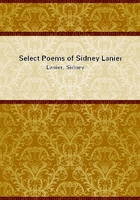
第61章 CHAP. XIX.(6)
Praesentem denique impetum propulsandi non vim praeteritam ulciscenti jus habet. Horum enim alterum a natura est, ut vitam scilicet corpusque tueamur. Alterum vero contra naturam, ut inferior de superiori supplicium sumat. Quod itaque populus malum, antequam factum sit, impedire potest, ne fiat, id postquam factum est, in regem authorem sceleris vindicare non potest:
populus igitur hoc amplius quam privatus quispiam habet: quod huic, vel ipsis adversariis judicibus, excepto Buchanano, nullum nisi in patientia remedium superest. Cum ille si intolerabilis tyrannus est (modicum enim ferre omnino debet) resistere cum reverentia possit, Barclay contra Monarchom. 1. iii. c. 8.
In English thus:
Sec. 233. But if any one should ask, Must the people then always lay themselves open to the cruelty and rage of tyranny?
Must they see their cities pillaged, and laid in ashes, their wives and children exposed to the tyrant's lust and fury, and themselves and families reduced by their king to ruin, and all the miseries of want and oppression, and yet sit still? Must men alone be debarred the common privilege of opposing force with force, which nature allows so freely to all other creatures for their preservation from injury? I answer: Self-defence is a part of the law of nature; nor can it be denied the community, even against the king himself: but to revenge themselves upon him, must by no means be allowed them; it being not agreeable to that law. Wherefore if the king shall shew an hatred, not only to some particular persons, but sets himself against the body of the common-wealth, whereof he is the head, and shall, with intolerable ill usage, cruelly tyrannize over the u7hole, or a considerable part of the people, in this case the people have a right to resist and defend themselves from injury: but it must be with this caution, that they only defend themselves, but do not attack their prince: they may repair the damages received, but must not for any provocation exceed the bounds of due reverence and respect. They may repulse the present attempt, but must not revenge past violences: for it is natural for us to defend life and limb, but that an inferior should punish a superior, is against nature. The mischief which is designed them, the people may prevent before it be done; but when it is done, they must not revenge it on the king, though author of the villany. This therefore is the privilege of the people in general, above what any private person hath; that particular men are allowed by our adversaries themselves (Buchanan only excepted) to have no other remedy but patience; but the body of the people may with respect resist intolerable tyranny; for when it is but moderate, they ought to endure it.
Sec. 234. Thus far that great advocate of monarchical power allows of resistance.
Sec. 235. It is true, he has annexed two limitations to it, to no purpose:
First, He says, it must be with reverence.
Secondly, It must be without retribution, or punishment; and the reason he gives is, because an inferior cannot punish a superior.
First, How to resist force without striking again, or how to strike with reverence, will need some skill to make intelligible.
He that shall oppose an assault only with a shield to receive the blows, or in any more respectful posture, without a sword in his hand, to abate the confidence and force of the assailant, will quickly be at an end of his resistance, and will find such a defence serve only to draw on himself the worse usage. This is as ridiculous a way of resisting, as juvenal thought it of fighting; ubi tu pulsas, ego vapulo tantum. And the success of the combat will be unavoidably the same he there describes it:
----- Libertas pauperis haec est:
Pulsatus rogat, & pugnis concisus, adorat, Ut liceat paucis cum dentibus inde reverti.
This will always be the event of such an imaginary resistance, where men may not strike again. He therefore who may resist, must be allowed to strike. And then let our author, or any body else, join a knock on the head, or a cut on the face, with as much reverence and respect as he thinks fit. He that can reconcile blows and reverence, may, for aught I know, desire for his pains, a civil, respectful cudgeling where-ever he can meet with it.